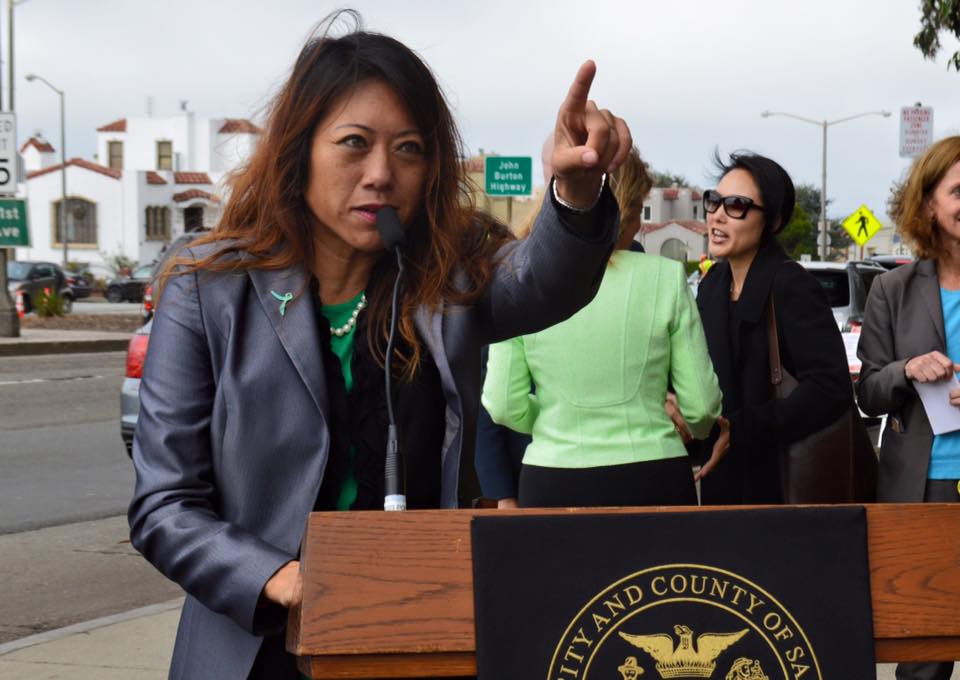
 One of the biggest obstacles to cannabis being a mainstream industry is the federal government. The feds classification of cannabis as a Schedule 1 controlled substance effectively keeps all federally chartered financial institutions from doing business with anything cannabis related.
One of the biggest obstacles to cannabis being a mainstream industry is the federal government. The feds classification of cannabis as a Schedule 1 controlled substance effectively keeps all federally chartered financial institutions from doing business with anything cannabis related.
The reality is the CDC (Centers for Disease Control) claims that cigarettes kill over 6 million people worldwide every year and almost 500,000 in the United States alone. For this, tobacco farmers get tax breaks and their lobbyists are on first name basis with their Congressional representatives.
Fiona Ma (“Join the Ma Squad”), with the California State Board of Equalization (BOE), has been pushing for a California state chartered financial institution to offer banking services to the cannabis industry. Ms. Ma understands that when the government treats the cannabis industry like a legitimate business, they can collect taxes. From her website, “While growers themselves do not have an obligation to sales tax, the BOE is interested in the relationship between the grower and the retailer.”
Simple things like requiring all cannabis dispensaries to be state licensed and to generate invoices for every purchase they make, detailing the farmer’s name and address, and then file 1099s at the end of the year, could transform the cannabis industry. This could benefit all players across the board, cannabis farmers, dispensaries, consumers, suppliers and the State of California. It’s nearly impossible to collect taxes in any cash business without receipts. When taxes are voluntary, guess what choice the taxpayer will take. It’s the reason why payroll taxes come out of your check every payday versus tracking down the employee to pay their taxes. Requiring cannabis dispensaries to issue 1099s on all sales would be a game changer. Hence the reason the State Board of Equalization is looking at ways to tax the cannabis industry.
Think of what can happen when an entrepreneur opens the first state chartered cannabis credit union. The cannabis industry would be able to make cash deposits into a bank-type account. They would have access to credit to help facilitate such things as purchasing land, farm equipment, cannabis clones, fertilizer, etc. Currently in Colorado, many cannabis dispensaries have purchased old mine shafts and set up 24-hour armed security to store their cash receipts since they don’t have access to banking. In the real world, most businesses rely on credit and debit cards for a high percentage of their sales. Think how the cannabis industry could benefit from a customer being able to swipe a card for their purchase.
It’s no secret that the State of California is looking to smooth out the peaks and valleys of volatile economic cycles with a stable tax base. The simplest way to do this is to tax the estimated $4 billion in Humboldt County (wholesale) sales of cannabis by adding a clone tax. As law enforcement and county inspectors go farm to farm, the first thing they ask is to see your clone purchase records from a licensed clone farm with the appropriate $10 per clone tax paid to the local jurisdiction. Those that pay the taxes are legitimate cannabis farmers and given a pass by law enforcement. Those that purchase from a black market cloner are outlaw tax evaders and subject to punitive legal actions.
Currently Los Angeles alone has more cannabis dispensaries than the states of Colorado and Washington combined. California cannabis retail sales are estimated to be $2.5 billion (with a “B”). California wholesale cannabis sales are estimated to be over $10 billion. That’s $10 billion in sales with almost zero taxes paid. And it means that the vast majority of our cannabis product is being shipped out of state, untaxed and, to the feds, as interstate transportation of narcotics.



Leave a Reply